Behavior
Left to their own devices, what is the default state of an equine?
Lives of feral (or wild) horses are often presented as a universal example of “ideal” for their domestic counterparts. But most of us will never be able to witness the lives of a horse free to roam hundreds of thousands of acres in our lifetimes. We can read books and scientific studies, but the nuances of a horse’s individual choices over the course of its lifetime and its effects on a horse’s behavior are often lost in the subtext.
Unfortunately, there is often a mismatch between horse behavior presented in courses by scientists and behaviorists when compared with horse behavior presented in books, online, and by horse trainers. During my time studying geology in Utah, I spent hundreds of hours in the desert cataloguing horses independently on a quest to know why. It led to the formation of the non-profit Onaqui Catalogue Foundation which is dedicated to recording information about the wild horses of the Onaqui herd in Utah, USA, and providing it for easy access by the general public (behaviorists and researchers included).
I have found that the lives of horses are rich and full of variation from the commonly presented structure of “one stallion + mares + offspring of one stallion”. Histories of management, predation, and environmental pressures (like climate) can all have a profound effect on how horses may organize themselves into large social groups. I still visit this (and other) feral and wild horse herds several times a year to continue to learn through observation. And, I have been fortunate to be able to share this knowledge directly with clients and through educational courses and talks. I believe that being able to observe raw horse behavior is invaluable and hope to bring the behavior of wild equids into the public where it can best inform handlers and practitioners of their domestic counterparts.

Courses & Webinars (2024)


If you would like to learn about feral horse behavior and observe the Onaqui herd in person, you can do so through an in-person course offered by the Onaqui Catalogue Foundation three times a year (Spring/Summer/Fall) through Continuing Education at the University of Utah. I co-teach this course with board Treasurer Theresa Orison. The course has filled up within hours in the past, so I’d recommend getting on the waiting list if you’re interested.
Our upcoming class begins on May 16 2024.
Fall class begins on September 19 2024.

Equine ethology and behavior expert Lucy Rees and I discuss and analyze wild and feral horse behavior. We take a deep dive into the behavior of wild horses, interpret videos of wild horse behavior, and discuss how a paradigm shift away from dominance can result in stronger partnerships with our horses and improve their welfare.

Understand Horses Live is a day of lectures plus a day of practical demos & training workshops on horse behaviour, physiology and training. It is hosted at ARU Writtle campus in Essex, UK. It is composed of an international panel of experts – equine behaviour consultants, academics, vets, physios.
This year (2024), I’ll be presenting on agonistic interactions between wild horses. In wild scenarios, outright aggression is rare. Learn about how aggression in horses is more complicated than it first appears. Learn the signs of escalating aggression and about natural and social environments that reduce aggression between equines in the wild.

UH LIve 2023
BEST FRIENDS?
AFFILIATIVE BEHAVIOR IN WILD HORSES
In Summer of 2023, I was invited to Understand Horses Live, an international panel of experts on horses consisting of behaviorists, physiotherapists, veterinarians, and academics. My presentation on affiliative behaviors in feral horses is now available on-demand! This presentation focuses on behaviors that occur following conflicts between individuals of a band. I also highly recommend both their other on-demand and scheduled courses which are available on the Understand Horses website.
Link to Course: Best Friends? Affiliative Behavior in Wild Horses
Click here to see more on-demand online courses from Understand Horses
Are you an Educator or Venue Dedicated to Public Education?
I am available to speak about feral horse behavior at education or public-education based venues such as colleges, universities, and non-profits. I can present in-person or online. As specific needs and associated costs are different for each organization, I am happy to work with you to design a class, seminar, or other event that best fits your program and your budget. If you’re interested, please do not hesitate to contact me for a no-obligation discussion.
FREE RESOURCES
OBSERVE INDEPENDENTLY
One of the best ways to learn about horses is to find horses and observe them without imposing our personal beliefs on the horses. There are feral and wild horses all across the western United States managed by the Forest Service, the Bureau of Land Management, and indigenous tribes. There are even horses in National Parks and Seashores! I cannot recommend enough to observe feral horses in person. Before you go, check with the managing agency and land-use holders for rules and restrictions. For example, you should never pass onto indigenous land without explicit permission. And, for the Onaqui herd, the Bureau of Land Management requires 100 feet be kept from wild horses at all times. In the presence of new foals, that distance is increased to 300 feet. Never pet or feed any wild horse!
WATCH UNEDITED VIDEOS OF BEHAVIOR
The Onaqui Catalogue Foundation has uploaded unedited videos of equine behavior to its publicly accessible Youtube channel. Videos are free for educational use. The channel is regularly updated with different kinds of behaviors and recently observed behaviors, so you can get glimpses into the wild lives of horses without ever leaving your living room!
Click here to visit the Onaqui Catalogue Foundation Youtube channel
WATCH SOCIAL MEDIA SHORTS
I regularly posts behavior "shorts" on TikTok (and link them through Instagram & Facebook). These are a compilation of multiple videos that showcase one behavior that wild horses do and the contexts for these behaviors. Just like how we can laugh when we are stressed or laugh when we are happy, some things that horses do have multiple meanings and uses! Use the icons below to check them out.
